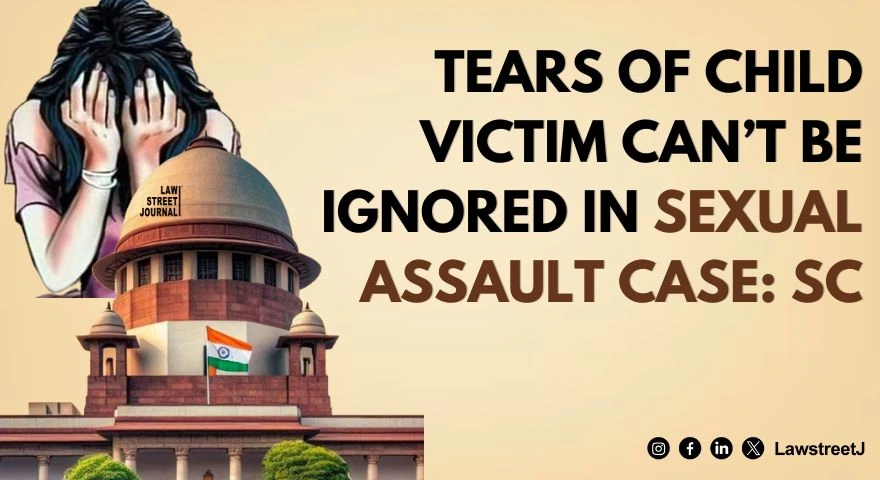NEW DELHI: The Supreme Court has held there is no hard and fast rule that a conviction cannot stand, in the absence of a statement by the victim in sexual assault cases.
Supreme Court Reverses HC’s Acquittal in Child Sexual Assault Case
A bench of Justices Vikram Nath and Sanjay Karol said that a child victim of sexual assault, who failed to depose anything, besides shedding tears, can't be a basis for granting relief to the accused, when other evidence, medical and circumstantial, is available pointing to his guilt.
The court allowed the Rajasthan government's appeal against reversal of the conviction of respondent Chatra in the case related to sexual assault of a Class I student, registered on March 3, 1986.
Considering the appeal, the court said, the child witness (victim), it is true, has not deposed anything about the commission of the offence against her. When asked about the incident, the trial judge records that ‘V’ (name withheld) was silent, and upon being further asked, only shed silent tears and nothing more. So nothing could be elicited from the testimony regarding the commission of the offence.
"This, in our view, cannot be used as a factor in favour of the respondent. The tears of ‘V’, have to be understood for what they are worth. This silence cannot accrue to the benefit of the respondent. The silence here is that of a child. It cannot be equated with the silence of a fully realised adult prosecutrix, which again would have to be weighed in its own circumstances," the bench said.
The bench set aside the Rajasthan High Court's 2013 judgment which reversed the conviction and the sentence of seven years jail term to respondent Chatra.
The bench noted ‘V’ has not turned hostile in the case.
"Trauma has engulfed her in silence. It would be unfair to burden her young shoulders with the weight of the entire prosecution. A child traumatised at a tender age by this ghastly imposition upon her has to be relieved of being the basis on which her offender can be put behind bars," the bench said.
Tears of Child Victim as Valid Evidence in Sexual Assault Case
In almost all other cases,the testimony of the rape victim is present and forms an essential part of the conviction of an accused, but at the same time, there is no hard and fast rule that in the absence of such a statement a conviction cannot stand, particularly when other evidence, medical and circumstantial, is available pointing to such a conclusion, the bench said.
The court also emphasised the absence of evidence of the victim is, not in all cases, a negative to be accounted for in the prosecution case.
"It is a matter of great sadness that this minor girl and her family have to go through nearly four decades of life, waiting to close this horrific chapter of her/their lives," the court said.
The bench said nearly 40 years ago on March 3, 1986 happened an incident, that forever altered the trajectory of a minor girl’s life. She was discovered unconscious and bleeding from her private parts, by one Gulab Chand, after the respondent-accused had allegedly subjected her to sexual assault. The said Gulab Chand filed a report with the concerned police station on March 4, 1986.
On November 19, 1987, a Tonk court convicted the accused guilty and sentenced him to seven years imprisonment, on the basis of statement by Gulab Chand and the doctor, who conducted her medical examination. However, it took 26 years for the criminal appeal to be disposed of by the High Court.
"By way of a judgment running into all of six pages, the findings of guilt returned by the trial court were upturned and the respondent-accused was acquitted of the charges against him. Suffice it to say that we are surprised with the manner in which this matter was dealt with by the High Court," the bench said.
The court pointed out as the first appellate court, the High Court is expected to independently assess the evidence before it while confirming or disturbing the findings of the court below. This is the settled position of law, it stressed.
The court noted the High Court has revealed identity of the minor victim.
"We note with some surprise that the High Court has referred to the victim by name throughout. This court in judgments, going at least a decade further back from the date of the impugned judgment, has highlighted the importance of abiding by such a restriction, preserving the privacy of the unfortunate victim," the bench said.















